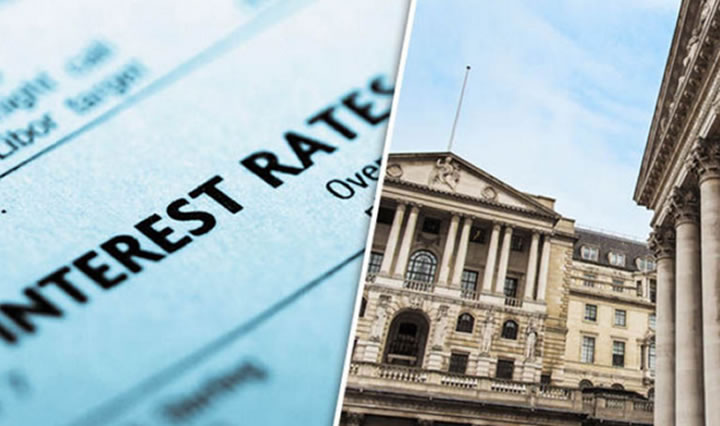4 Insights for Adjusting Your Portfolio in a Rate-hike Environment
Stock-Markets / US Interest Rates Aug 19, 2017 - 02:01 PM GMTBy: Boris_Dzhingarov
 The U.S. Federal Reserve has raised interest rates twice this year already and it plans to increase interest rates five or six more times next year. An environment in which interest rates are rising steadily could be a double-edged sword for different classes of investors. For older investors, a rate hike could provide another chance to book decent returns from conservative assets such as money-market funds and CDs. For 'younger' investors the rate hike could slice through retirement accounts like hot knife through butter.
The U.S. Federal Reserve has raised interest rates twice this year already and it plans to increase interest rates five or six more times next year. An environment in which interest rates are rising steadily could be a double-edged sword for different classes of investors. For older investors, a rate hike could provide another chance to book decent returns from conservative assets such as money-market funds and CDs. For 'younger' investors the rate hike could slice through retirement accounts like hot knife through butter.
Financial advisers agree that an increase in interest rates could cause a capital flight from stocks (most of which are currently overvalued) to other income-paying assets. This piece provides 4 insights into how to adjust your portfolio in a rapidly-changing rate-hike environment.

1. Stop chasing home runs
One of the biggest threats looming over Wall Street right now is the possibility of a market pullback. Investors have bid up the valuation of many stocks to sky-high prices based on their expectations of a future rapid growth from such stocks. However, if the capital flight that tends to follow a rate hike triggers a market pullback, you can reasonably expect many of these favorite stocks to take a hit.
Chasing home runs in stocks is likely to tempt you to fill your portfolio with overvalued stocks and you'll be in for a rude awakening when share prices tank. Instead of chasing the next big thing in stocks, you should consider investing in sturdy companies that have strong cash flows. Such sturdy companies tend to pay decent dividends and the dividends can save your portfolio from the volatility of rising interest rates.
2. Be wary of stocks with rate-related fundamentals
Investors mostly want to invest in assets that have low volatility while promising decent ROI. In the last couple of years, it is not surprising that investors have loaded up on stocks such as utilities and dividend aristocrats that pay decent income. However, investors are mostly a fickle bunch and they won't think twice about abandoning stocks to relatively safer fixed-income assets such as bonds if interest rates continue to rise. Hence, you could be left holding an empty bag when investors eventually trigger a capital flight from stocks into other assets.
Randall Cunningham, an analyst at SNP Investments notes that "you should consider putting your money into opportunities that have historical proof of performing well even when interest are rising such as PowerShares S&P 500 Ex-rate Sensitive Low Volatility (XRLV) ETF."
3. Pay attention to your investment costs
Investing attracts some inevitable expenses such as fund fees and transaction costs – such expenses can make a huge difference on your bottom line. If you want to keep your portfolio above water in a rising-interest rate environment, you'll need to watch the cost of investing. If you are investing in funds, you may want to seek out low-fee funds or ETFs because they have more money to return to investors. More so, low-fee funds are often better managed than expensive funds because they have economies of scale to spread out costs to a larger number of investors.
4. There are huge opportunities beyond our borders
If you are worried about what rising rates might mean for U.S. assets and securities, you should consider investing in diversifying your portfolio in oversea properties. To start with, valuations are still low in many foreign markets and you could have better prospects of recording growth in their assets. In addition, investing in foreign markets protects your portfolio from the volatility that tends to accompany the chatter of a rate hike.
By Boris Dzhingarov
© 2017 Copyright Boris Dzhingarov - All Rights Reserved
Disclaimer: The above is a matter of opinion provided for general information purposes only and is not intended as investment advice. Information and analysis above are derived from sources and utilising methods believed to be reliable, but we cannot accept responsibility for any losses you may incur as a result of this analysis. Individuals should consult with their personal financial advisors.
© 2005-2022 http://www.MarketOracle.co.uk - The Market Oracle is a FREE Daily Financial Markets Analysis & Forecasting online publication.



